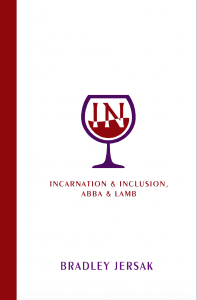 Welcome!
Welcome!
Welcome to my inaugural Patheos post. I arrived here with the help and encouragement of my friend Keith Giles, who is another blogger well worth following. You can find him HERE.
By way of introduction, I was a pastor/church planter by vocation from 1988-2008 until I stepped away to pursue some personal healing time through spiritual direction, mentoring and theological studies. By 2012, I graduated from Bangor University, Wales (Ph.D. theology) and joined the faculty of WTC (Westminster Theological Centre – Cheltenham, UK). That’s also the year I made my move into the Orthodox Church, where I serve as a “reader” at the All Saints of N.A. Monastery in Dewdney, BC Canada.
More recently, I’ve also moved my academic base to St. Stephen’s University (St. Stephen, NB Canada), where I’ve just stepped into the role of Dean of the Ministry program. Want to study with me? We offer graduate degrees (M.Min. or M.A. in Theology & Culture) through a modular program where you only need to come to the school three times for two weeks and join us on another 2-week travel module to Greece, Italy, and Turkey.
I’ve also been busy writing. Among the 18 books I’ve published, some of the latest are A More Christlike God, then the sequel A More Christlike Way and just out of the gate, IN: Incarnation & Inclusion, Abba & Lamb.
In this particular post, I’ll start with a Question & Response that came my way via email, which will often be the case moving forward. This one relates to the connection (if there is one) between a belief in Ultimate Redemption and Evangelism.
Question:
I found (and appreciated) your recent review of David Bentley Hart’s That All Shall Be Saved in Clarion Journal. I have been thinking a lot about these various views, and have been wondering about something: evangelism (or, at least, kingdom declaration) seems to have been endemic in early Christianity, the Apostle Paul being perhaps the most outstanding example. I understand the Infernalist and Conditionalist reasons for evangelism, but I was wondering, what are the reasons for evangelism among proponents of Ultimate Redemption and/or Hart’s Christian Universalism? This question greatly intrigues me. If you have already written something on this, or can point me to a good resource, I would greatly appreciate it.
 Response:
Response:
- By sending his Son to reveal God’s self-giving, radically forgiving, co-suffering love.
- Through Christ’s decisive victory over Satan, sin and death in his Passion and Resurrection.
- Via the witness of those who faithfully announce the good news (there’s your evangelism).
- In answer to our prayers that all people, everywhere, would be saved (1 Tim. 2:1-4).
- By the transforming grace of the Holy Spirit.
- Through a willing faith response to Jesus Christ.
- And through the refiner’s fire of judgment–which is the fire of Christ’s passionate love for us that consumes whatever in us is not of love’s kind (Mal. 3 / Mark 9 / 1 Cor. 3).
- We’ve been soured to the Great Commission because modern evangelism had become so ugly. Instead of shining brightly with truly good news, our focus had shifted to rationalistic apologetics (arguing) or worse, to threatening ultimatums. I.e. We distorted the means. No thanks.
- We’ve become awake to God’s all-inclusive love but lost the uniqueness of the Incarnation as the Way our access to God as Abba comes about. I.e. We forgot the means to the end.
- When we’ve not actually met Jesus in a way that makes Christ real to us. We can’t proclaim what we haven’t experienced. Have traded in the transforming power of an authentic inner relationship with the living God for the fruits of suburban capitalism? Are we out of touch with humanity’s existential crisis and adopted Christianity as an -ism not much worth trumpeting? These are real questions for self-examination. In short, how do we deal with the reality of Christendom where so many Christians have signed off on a prayer or creed and not yet met Christ?
P.S. It is striking to me that when the evangelists of the book of Acts preach the gospel (MANY times to Jews and Gentiles, including to the Jewish Sanhedrin and Greek philosophers) they never once address hell as a motivation in their evangelism. Not even once! It’s all about what Christ has done for us and the hope he gives us now–following him today is the good news that changes everything. That’s a gospel I can (and do) preach.











